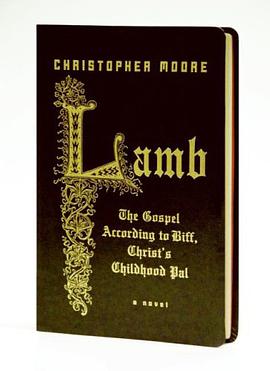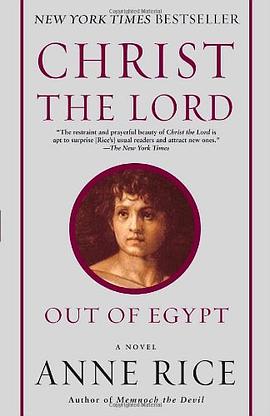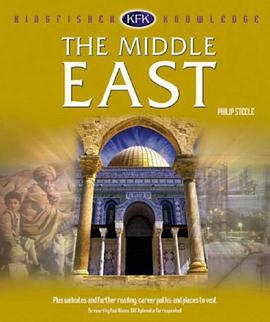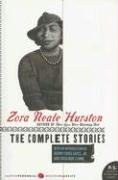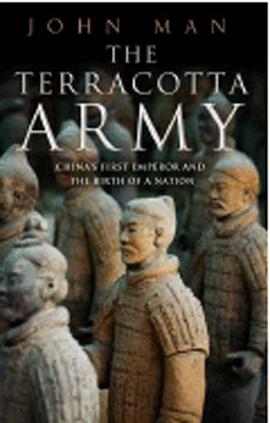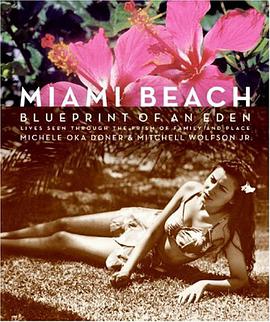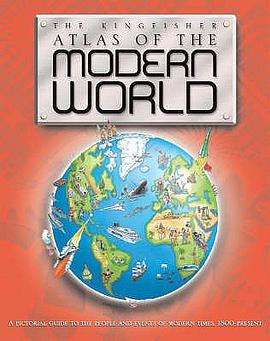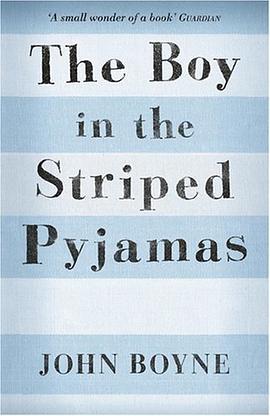

具体描述
This book is the follow up to the previous volume On Beauty. Apparently beauty and ugliness are concepts that imply each other, and by ugliness we usually mean the opposite of beauty, so all we need do is define the first to understand the nature of the second. But the various manifestations of ugliness over the centuries are richer and more unpredictable than is commonly thought. The anthological quotations and the extraordinary illustrations in this book lead us on a surprising journey among the nightmares, terrors, and loves of almost three thousand years, where acts of rejection go hand in hand with touching gestures of compassion, and the rejection of deformity is accompanied by decadent ecstasies over the most seductive violations of all classical canons. Among demons, madmen, horrible enemies, and disquieting presences, among horrid abysses and deformities that verge on the sublime, among freaks and the living dead, we discover a vast and often unsuspected iconographic vein. So much so that, on gradually encountering in these pages the ugliness of nature, spiritual ugliness, asymmetry, disharmony, disfigurement, and the succession of things sordid, weak, vile, banal, random, arbitrary, coarse, repugnant, clumsy, horrendous, vacuous, nauseating, criminal, spectral, witchlike, satanic, repellent, disgusting, unpleasant, grotesque, abominable, odious, crude, foul, dirty, obscene, frightening, abject, monstrous, hair-raising, ugly, terrible, terrifying, revolting, repulsive, loathsome, fetid, ignoble, awkward, ghastly and indecent, the first foreign publisher to see this book exclaimed: ‘How beautiful ugliness is!’
作者简介
翁贝托•艾柯(Umberto Eco),意大利人,生于1932年,现居米兰,执教于博洛尼亚大学。他是享誉国际的小说家、符号语言学权威、哲学家、历史学家、文学评论家和美学家,出版过140多部著作,横跨多个领域,都有经典性的建树,是百科全书式的学者,被誉为“当代达·芬奇”。作为全球最具影响力的公共知识分子,他在欧洲已成为知识和教养的象征,知识分子都以书架上放一本艾柯的书为荣。简体中文版艾柯作品:http://book.douban.com/doulist/26197/
目录信息
读后感
看完挺震撼,除去政治因素,整个东方文化也总是露美遮丑,像我这样的85后接触到的历史文化其实是剥去了很多原汁原味的进化细节,被新的审美观重包过的。确实需要从内心把丑作为美不可分割的一部分来接纳。 我第一次见到此书是在机场候机厅,很吸引我,但价格太贵。...
评分 评分非常值得稱讚的是,質量很不錯! 很喜歡這本書的質地,手感很好,因為有一定的重量所以拿在手上的感覺很像在捧著一本百科全書, 裏面的插圖也有些出乎我的意外, 關於【醜的歷史】這本書裏面所講訴的有關資料與歷史, 我之前已閱讀過不少, 不過裏面的有些插圖我還是第一次看到...
评分 评分用户评价
这本书的冲击力在于其对“常态”的持续性侵蚀。它不是一本提供简单答案的书,它更像是一面凹凸不平的镜子,你凑得越近,看到的景象就越扭曲,但同时也越接近事物的本质。我读完之后,感觉自己看待日常生活的视角被彻底重置了。以前那些习以为常的、被认为是“理所当然”的结构,现在都蒙上了一层质疑的阴影。作者的论述非常具有说服力,不是因为他使用了情感化的语言,而是因为他构建了一个逻辑严密、自我支撑的批判体系。他将我们对特定事物的排斥心理,追溯到了非常古老的、近乎生物本能的层面,这让人不寒而栗。这本书挑战的不是读者的智力,而是读者的道德舒适区。它要求你直面那些被主流文化所排斥和边缘化的存在,并思考排斥本身的机制。这是一次漫长而艰难的阅读旅程,但对于任何渴望超越表面、深入探究事物底层逻辑的人来说,这本书是不可多得的宝藏。
评分我必须承认,这本书在某些时刻确实让人感到非常疲惫和压抑。它不像其他探讨人性或社会现象的书籍那样,会提供一个清晰的出口或最终的救赎感。相反,它似乎更热衷于挖掘那些根植于我们文化深处、却又被集体遗忘的阴影。作者的语调近乎冷酷,没有多余的同情或煽情,这使得其论证的力量得以最大化,但也让读者在情感上时刻处于一种被审判的状态。我记得有一次,读到关于某些群体性行为的描述时,我不得不放下书本,去做一些完全不相关的事情来“净化”一下我的感官。这种近乎于文学上的“痛苦”,恰恰是这本书最核心的价值所在——它不提供廉价的安慰,而是提供一种面对现实的勇气,哪怕这份现实是丑陋不堪的。它成功地颠覆了我过去对某些既定美学的认知,用一种近乎残忍的方式,展示了事物存在的另一种可能形态。
评分阅读体验简直就是一场思维上的马拉松,它不是那种让你放松地享受故事起伏的作品,而是要求你全程保持高度警觉。我常常需要停下来,合上书本,只是盯着天花板发呆,试图理清作者刚刚抛出的那个令人不安的概念。它的结构极其松散,章节之间的逻辑跳跃性很强,仿佛是意识流和严谨学术论证的混合体,这种不确定性本身就构成了它叙事的一部分张力。有些段落充满了哲学思辨的深度,像迷宫一样绕来绕去,你需要不断地在宏观与微观之间切换视角。而另一些地方,语言突然变得极其具象化,用一种近乎病态的精确度描绘出某些场景或感受,让人不得不佩服作者驾驭不同语域的功力。我发现自己不得不查阅大量的背景资料来理解作者引用的那些晦涩典故,这让阅读过程变得漫长,但同时也极大地拓展了我已知的知识边界。这本书成功地避开了所有套路化的表达,每一次阅读都有新的发现和新的困惑,这才是真正有价值的阅读体验。
评分这本书的封面设计简直是一场视觉上的冒险,用色大胆,排版充满了一种刻意的失衡感,就像是特意要挑战读者的审美习惯。拿到手里的时候,那种略带粗粝感的纸张质地,配合着略微模糊的油墨印刷,立刻营造出一种疏离又引人入胜的氛围。它没有试图用任何华丽的辞藻或精致的图像来取悦你,反而像是直接将你扔进了一个未经修饰的、甚至有些粗糙的现实角落。我花了好一阵子才适应这种风格,但一旦沉浸进去,那种原始的冲击力就让人难以自拔。作者似乎对“美”的传统定义嗤之以鼻,转而用一种近乎解剖学的冷静,去审视那些通常被我们遮掩、回避的角落。书中的文字密度很高,需要集中精力去消化,但回报是丰厚的,它强迫你重新审视自己对世界万物的基本判断标准。我尤其欣赏它在处理那些微妙的、介于“可接受”与“令人不适”之间的灰色地带时所展现出的那种不动声色的力量。这不仅仅是一本书,更像是一次对感官边界的邀请函。
评分从文学技巧的角度来看,这本书的叙事声调变化多端,像是听一出由不同乐器演奏的交响乐,但所有乐器都在演奏着同一首令人不安的乐章。作者非常擅长使用长句和复杂的从句结构,这些句子往往层层递进,将一个简单的意象层层剥开,直到露出其内在的腐朽核心。但在某些关键节点,他又会突然切换到极简、口语化的短句,这种对比产生了巨大的戏剧张力,像是一次突然的曝光,将所有的细节暴露在刺眼的灯光下。更让我惊叹的是他对“感知”本身的探讨,他没有停留在表面现象,而是深入到大脑如何接收和处理信息,以及文化如何塑造我们对“缺陷”的定义。书中穿插的一些类比和隐喻,初看之下似乎有些牵强,但细想之下,却无比精妙地连接了看似不相关的领域,展现出一种跨学科的思维深度。这绝对是一部需要反复研读,并做大量笔记才能充分消化的作品。
评分 评分 评分 评分 评分相关图书
本站所有内容均为互联网搜索引擎提供的公开搜索信息,本站不存储任何数据与内容,任何内容与数据均与本站无关,如有需要请联系相关搜索引擎包括但不限于百度,google,bing,sogou 等
© 2026 book.quotespace.org All Rights Reserved. 小美书屋 版权所有


